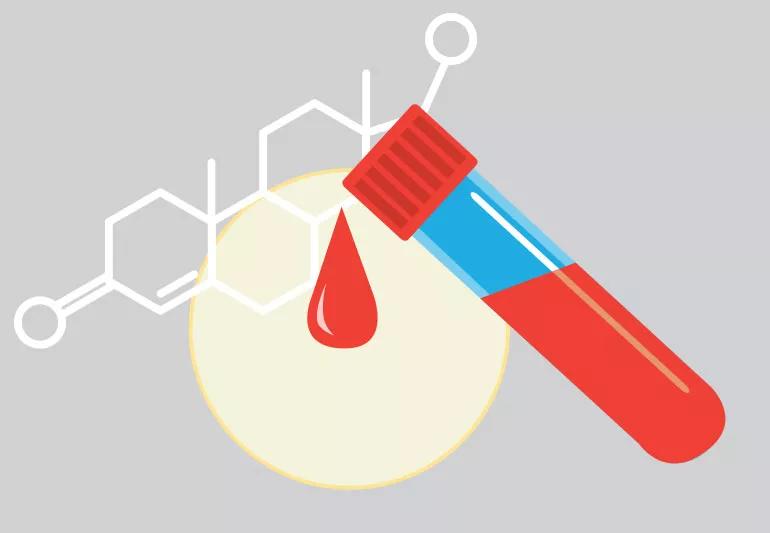Despite assumptions, there really isn’t a one-to-one connection between the conditions

Image content: This image is available to view online.
View image online (https://assets.clevelandclinic.org/transform/e1e62fe5-9173-4e9a-84ba-5db4721f1e48/low-testosterone2-1359043685-770x533-1_jpg)
A drawing of a drop of red liquid coming out of a vial
Testosterone serves as a pretty high-octane fuel for sex drive. Know what else is kind of key while fooling around? Erectile function.
Advertisement
Cleveland Clinic is a non-profit academic medical center. Advertising on our site helps support our mission. We do not endorse non-Cleveland Clinic products or services. Policy
So, if your testosterone tank is running a bit low, does that fuel shortage mean a certain body part won’t rev up for special activities? It’s a logical connection to make. After all, the two seem pretty related.
But the answer isn’t as simple as Low Testosterone = Erectile Dysfunction. The relationship is a bit more nuanced than that basic formula, explains urologist Brad Gill, MD, MS. Here’s why.
Video content: This video is available to watch online.
View video online (https://cdnapisec.kaltura.com/p/2207941/sp/220794100/playManifest/entryId/1_l99qdrx2/flavorId/1_5f3sgelj/format/url/protocol/https/a.mp4)
Learn more about the connection between low testosterone and erectile dysfunction from urologist Raevti Bole, MD.
Let’s start with a basic statement: Low testosterone (low T) and erectile dysfunction (ED) are very different conditions, says Dr. Gill.
Low testosterone, or male hypogonadism, is an endocrine condition in which your testicles don’t produce enough testosterone, which can result in various symptoms. Testosterone serves many roles in your body, but the key one for this discussion focuses on how it powers libido.
If you have low T, your sex drive may be sputtering along in the slow lane or stalled in traffic. You just might not feel like … well, doing it.
Testosterone lowers naturally with aging, but a diagnosis of low testosterone is made in the presence of symptoms and can involve other factors. These can include medical conditions — having a BMI > 25 (overweight), for instance — or an injury to your testicles or pituitary gland.
Advertisement
Erectile dysfunction, meanwhile, refers to the inability of your penis to get and keep an erection firm enough for use. The issue typically involves some sort of breakdown in your penis-lifting teamwork between hormones, muscles, blood vessels and nerves.
Many, many things can lead to ED. The most common causes, though, involve heart and vascular disease affecting blood flow, or diabetes causing a loss of nerve function.
“Low T and ED really are separate issues,” notes Dr. Gill. “But there are connections.”
For starters, a symptom of low testosterone may be erectile dysfunction. An estimated 1 in 3 men with ED can also have low T, according to researchers.
But don’t get fooled by that statistic: “It’s not a one-to-one association,” emphasizes Dr. Gill. “Low T may co-exist with ED, but low T does not necessarily cause ED. There is no direct correlation.”
Plenty of people with low T have no trouble getting an erection, Dr. Gill points out. On the flip side, having higher levels of testosterone isn’t a complete safeguard against ED.
But low T can contribute to ED in the following ways.
For those experiencing ED, it’s not unusual to presume a testosterone shortage is to blame. This is also supported by national guidelines that recommend checking testosterone levels in men being seen for ED treatment.
“It’s very, very common for guys to come in and ask for their testosterone to be checked because they’re having troubles with erections,” says Dr. Gill. “There’s an assumption that has to be the reason.”
But even if they have low T, addressing that issue typically doesn’t resolve ED. “You handle them separately,” he adds. “There’s really no great evidence that just treating low testosterone levels will help you get an erection.”
So, what should you do if you have ED? Start with talking to your doctor or a healthcare provider.
“Remember, erectile dysfunction can be an indicator of more serious medical issues,” warns Dr. Gill. “It’s important to understand why it is happening and find out what’s really going on. You can’t just write it off as a testosterone problem.”
Advertisement

Sign up for our Health Essentials emails for expert guidance on nutrition, fitness, sleep, skin care and more.
Learn more about our editorial process.
Advertisement
Adjusting your diet to focus on plant-based, whole foods may improve erectile function
Here’s what you need to know about ED, which most men experience to some degree during their lives
Research shows the virus can affect your ability to get or maintain an erection
Psychological factors are the main cause of ED in younger men, followed by medications and a range of health conditions
Early results show the procedure may help resolve mild to moderate ED
Learn the many causes of erectile dysfunction
A variety of factors can cause temporary or more lasting changes in penis length
An unexplained lump, swelling, discomfort or changes to your testicles shouldn’t be ignored
Prioritize your health by managing stress, strengthening your social connections and getting quality sleep
Bolsters, blankets, pillows and blocks can offer extra support, stability and comfort
Allergies, postnasal drip, asthma or reflux could be to blame for a cough that won’t quit